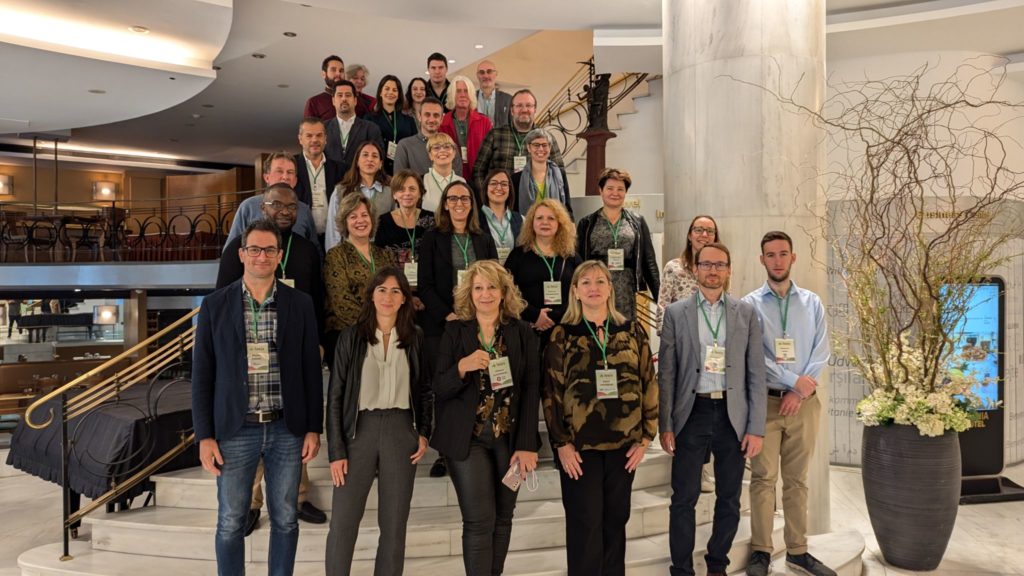This November we flew to Athens for the official kick off of IASIS, a new Horizon Europe project supported by the Circular Bio-based Europe Joint Undertaking (CBE JU), aiming to tackle the issue of contaminated and saline lands in Europe.

Europe faces a significant issue with contaminated land, with an estimated 2.8 million sites affected by polluting activities, including former industrial areas, mining areas, military training grounds, and landfills. Additionally, soil salinity is a growing concern, particularly in coastal regions, threatening agricultural productivity and contributing to desertification.
IASIS will tackle these challenges head-on by implementing phytomanagement techniques, which involve cultivating specific high-yielding, non-food industrial crops that can effectively absorb and remove pollutants from the soil, while also providing a valuable source of biomass for the production of a range of bio-based products.
This will contribute to the European Union’s goal of transitioning to a more sustainable, bio-based economy, while also creating new economic opportunities for farmers and rural communities.
In IASIS ETA will be leading the dissemination communication and exploitation activities. Stay tuned for more updates!
Special thanks to the coordination team at the Centre for Renewable Energy Sources and Saving (CRES) and to our Greek partners National Technical University of Athens and Agricultural University of Athens for the excellent hosting!
Coordinator: Centre for Renewable Energy Sources and Saving (CRES)
Partners: Novamont, Wageningen University & Research, CHIMAR HELLAS SA, UBFC – Université Bourgogne-Franche-Comté, Agricultural University of Athens, National Technical University of Athens, ETA Florence Renewable Energies, ULiège – RISE, Uniwersytet Marii Curie-Skłodowskiej w Lublinie, Celabor srl, Ilios, Alma Mater Studiorum – Università di Bologna, Quadrado Selvagem, Universidade Nova de Lisboa, Bio4plas – Biopolímeros, Lda.
